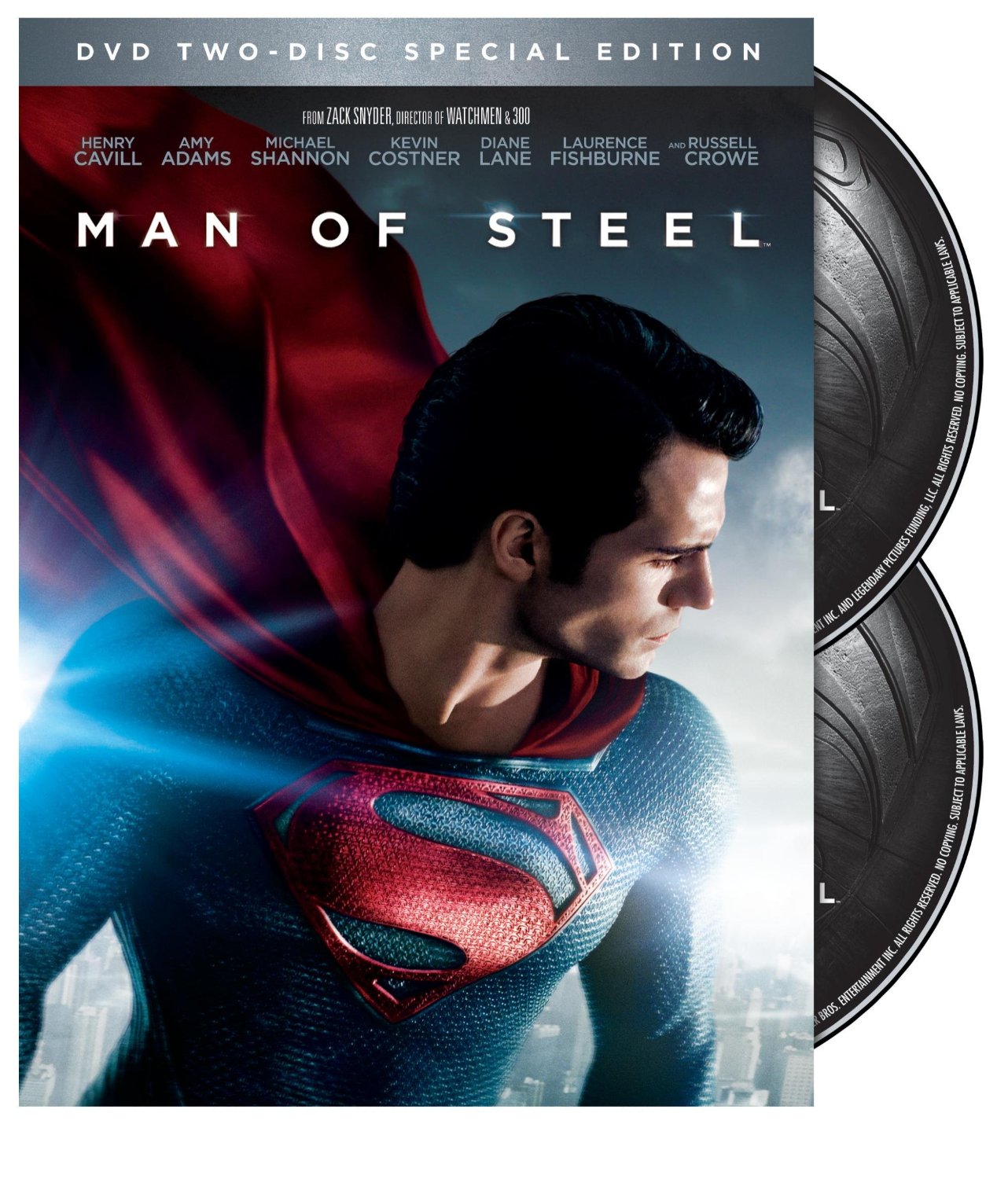Man of Steel, starring Henry Cavill, Amy Adams, Michael Shannon
Let’s start by listing the positives:
- The acting is frankly excellent. All of the actors portray their characters ver well, and believably — very important in a fantasy movie. Special kudos goes to Henry Cavill, Michael Shannon, Kevin Costner and Laurence Fishburne
- The special effects are excellent. When young Clark Kent has trouble controlling his x-ray vision, and sees his classmates and teacher as walking skeletons with beating organs, that’s exactly how I would expect it to look. Likewise throughout the entire film, the special effects seem “real” and enhance the movie, and don’t distract from the story telling
- The cinematography is very good, and the movie looks interesting visually.
Sadly, there are quite a few negatives as well:
Characterization.
In short, many of the people act totally out of character, especially Jonathon Kent (Kevin Costner, who did very well with the role that he was given). Jonathon Kent is quite content for people to die — any number of people, in any number of ways …. As long as Clark keeps his identity secret. It’s not that the writers have to stick to the interpretation from the comics — that’s certainly changed over the years, with different writers and countless reboots of the DC universe. But this is the man who is supposed to have instilled in Clark his bedrock sense of morality. In contrast, Lawrence Fishburne acts entirely in character as Perry White — gruff, caring about his staff, caring about reporting the truth.- Not caring about civilians: in the very long, protracted fight scenes, Superman makes no effort to move the fight to an uninhabited area … and thousands, if not tens of thousands, of innocent civilians are injured and/or killed. Totally out of character.
- Many times, while watching the movie with my family, one or more of us would shout out “why doesn’t (x) simply do (y)?” and avoid the entire problem? Again, and again, and again.
- The planet that Superman is the last survivor of, hardly seems worth mourning. Everyone on the planet is genetically engineered, and assigned at birth to their task: military, scientist, plumber, or whatever. If you don’t want to be that? Too bad; the State has chosen for you. When Zod — loyal military man — stages a coup on Krypton against the existing leadership (who typically are ignoring all of the warnings of the planet’s impending destruction) you almost want to cheer for him — except for his merciless, brutal methods.
Logical flaws:
Overall, Man of Steel is a valiant effort, but fails in it’s attempt at restarting the Superman franchise — too long, didn’t hold interest, I rate it only a C, despite some very good acting performances
Editorial review of Man of Steel courtesy of Amazon.com
At a time when comic book heroes are increasingly distinguished by their flaws, Superman’s status as the ultimate good guy has caused him to fall out of favor. (How do you get audiences to relate to a dude who can push the moon out of orbit and has the morals of an Eagle Scout?) Man of Steel, producer Christopher Nolan’s attempt to give the hero a Dark Knight retrofit, succeeds in giving the character a fresh start, courtesy of both a gargantuan sense of scale, and Henry Cavill’s winningly unironic central performance.
Devotees of Christopher Reeve’s legendary mild-mannered portrayal may find themselves missing the sequences of quiet time from the previous films (the steadily escalating plot spares little time for cats stuck in trees), but this still manages to uphold the gee-whiz qualities that made people buy the comics in the first place. For all of the stunning bangs and gigantic sonic booms, its greatest achievement may be in making Superman’s fundamental squareness feel like a virtue again.
Nolan and director Zack Snyder (Watchmen) have kept the basic elements of the origin story–infant survivor of an alien world comes to Earth, crash lands in Kansas, grows up big and really, really strong–while putting a spin on virtually all of the details. Here, Krypton is depicted as a wonderfully baroque ’50s sci-fi menagerie, X-ray vision has some painful flaws, and Lois Lane (Amy Adams) isn’t the type of person to be fooled by a pair of glasses.
The spirit of reinvention carries over to the cast, with the perfect chemistry of Cavill and Adams aided by admirably serious-minded supporting performances from the likes of Russell Crowe, Kevin Costner, Diane Lane, and the tremendously intense Michael Shannon, as a super-powered conqueror with his own special motivation for assuming control. (Like most great villains, he doesn’t see himself as the bad guy.)
Superhero movies have always had a problem knowing when to say when, and Man of Steel doesn’t exactly break from tradition in that regard, with a climactic fight scene that eventually turns into a well-staged but numbing series of explosions. (Godzilla would be taken aback by the levels of property damage.) Bumps aside, however, this still stands as a tremendous first step in a new direction, with a final line that suggests even better things may be in store. The canvas finally feels large enough to support the myth. –Andrew Wright
